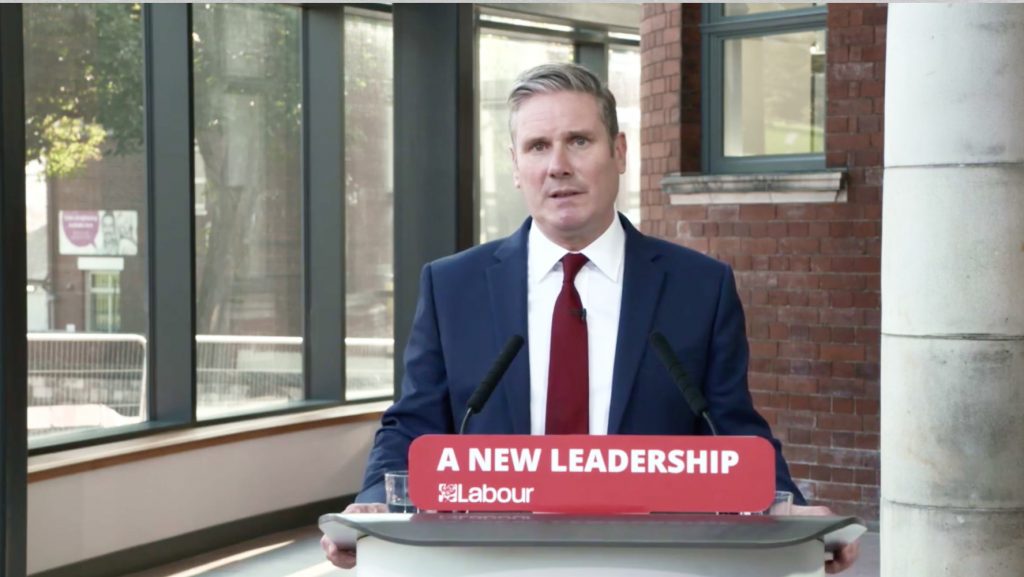It’s an anxious time for the Labour Party. The new leadership are taking a cautious approach after a time of bitter internal conflict and poor results. It’s feels like the most obvious direction and is keeping them out of heavy controversy.
The main criticism being, they are too quiet. In fairness, Keir Starmer has managed to get a fair amount of coverage on the BBC and in the papers. According to YouGov polling, 61% of voters have heard of the new leader now, and many have a reasonable opinion of him. He is seen as an acceptable labour politician, unlike Jeremy Corbyn. This is his strategy: appear less radical than you are. Unfortunately, the rest of the party isn’t as popular as him and are consistently unable to out-poll the Conservatives. Lots of voters are hesitant to climb back on, just yet.
The vision is that over four years, the Conservatives’ reputation will crumble due to the economic and social impact of the pandemic, a nonsensical Brexit deal, the “incompetence” of Boris Johnson and their overall record in government over the previous 14 years. By this point, Labour wants to be the obvious alternative. So to get there, they paint themselves as a calm, united and sensible group who understand the conservative but economically left-wing working class voters and liberal but economically right-wing upper-middle class voters they have lost in elections since 2010, while keeping the liberal and economically left-wing young and metropolitan voters they gained in 2017.
The problem for Labour is how weak a position they find themselves in. They would need to gain 134 seats for a majority of 1, and they still can’t find a foothold in Scotland. Labour has been in terminal decline there since Tony Blair was prime minister. Only in recent days was there an aborted attempt to oust the current leader of Scottish Labour due to very poor polling.
It’s harder for Labour to win a majority in just England and Wales than the Conservatives, while SNP support of a minority government will require a second referendum. With recent polls being consistently in favour of independence, they will want to avoid that too. Either attempt a minority government and hope that the other centre-left parties will support the policies or 2024 will just have to be a stepping stone to power in 2029. Or, Labour could return a surprise result in England and Wales through the coalition of voters I spelt out earlier. It will be hard work and some luck.
In Wales and London, the party is in a better situation. There are elections to the Senedd (Welsh Parliament) and for the Mayor of London next year, alongside local elections – the first test of support for the new leadership team. They’re out-polling their rivals but not significantly, a step in the right direction considering the consistently negative polling regarding the government and its leader. Things could change quite quickly. By May, once the economic impact of the pandemic and a potentially risky Brexit deal are a reality, the mood in the country is likely to be more against them.

Mark Drakeford, the leader of Welsh Labour, is the most popular leader in Wales after guiding the country through the pandemic, appearing in their press conferences and taking a different approach to the British government. Sadiq Khan, on the other hand, is more controversial. London has been dealing with some violent crime, protests and cultural clashes in recent months. This can’t all be put at the feet of Khan, but he is seen as some sort of figurehead for London, so it’s hard not to look to him for answers.
Finally, in his efforts to be cautious, Starmer has ended up upsetting some progressives who don’t feel he is standing up for social justice causes properly, unlike the previous leadership. He has also left himself open to commentators and pundits to describe him as underwhelming or boring. This will be used to attack him and Labour in coming years but could fail in the post-lockdown post-Brexit lead up to the 2024 general election. Starmer and his team will hope opposition to the government will be so strong by then that he will win almost by default. It’s a gamble, but it makes sense.
header image credit: labourlist

